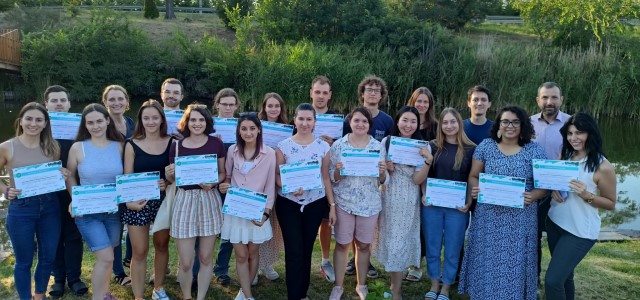GWP CEE in cooperation with GWPO and GWP Hungaryand the support of Xylem Solutions organized its 2022 Summer School for 20 select participants to expand their knowledge about water pollution, water governance and integrated water resource management (IWRM). The Summer School curriculum comprised theoretical knowledge with practical experience. This setup gave the participants a chance to test their newly gained knowledge on practical case studies, utilizing brand new GWP ToolBoxIWRM Action Hub as an effective means of approach to complex issues in water and climate.
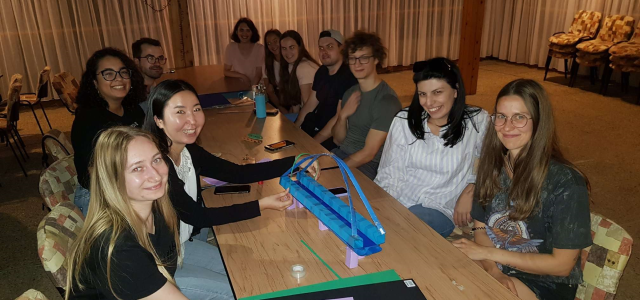
Applicants from more than 25 countries competed to secure their spot in the Summer School from 12-19 June 2022. The chosen 20 proved they are the best in their field as they had to constantly work and discuss together to achieve the desired results.
The participants met at the banks of the Tisza Lake in Hungary. The site was chosen specifically due to the abundance of opportunities related to the topic of the event. The Tisza River, as an international river linking 5 countries, faces various water pollution issues and the lake’s water utilities are the place where this issue accumulates severely. This offered the participants a unique opportunity to experience all the theoretical knowledge they gained in real life and on site.
The participants dived into various lectures and interactive exercises, led by lecturers from GWPO, GWP CEE, GWP Slovenia and GWP Romania as well as guest speakers from Middle Tisza District Water Directorate and the Hungarian water management bodies as well as the private sector. Among the topics covered were stakeholder engagement, transboundary cooperation, water management on national and regional level, sustainable sanitation, and innovative practices to tackle water pollution.
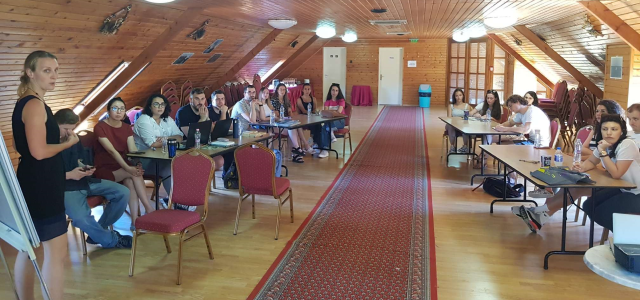
With the lectures complimenting each other, the participants were led through a path of discovering new knowledge and then utilizing it during case study sessions as they formed smaller teams working on various scenarios and solutions. The curriculum started from broader topics, e.g., introduction to IWRM and water governance, and problem-based learning, that later pivoted to the specifics of water conflicts, transboundary co-operation, river basin management and stakeholder engagement.
A field trip to the hydroelectric power plant at Kisköre was especially enriching, as the participants had a chance to interview its management as well as the Kisköre mayor about the facility’s current situation, challenges with pollution and water management as well as future predictions. Apart from rich discussions, video interviews were made with the stakeholders to serve as support material for the participants’ final presentations on the outcomes of the case studies they were tasked with.
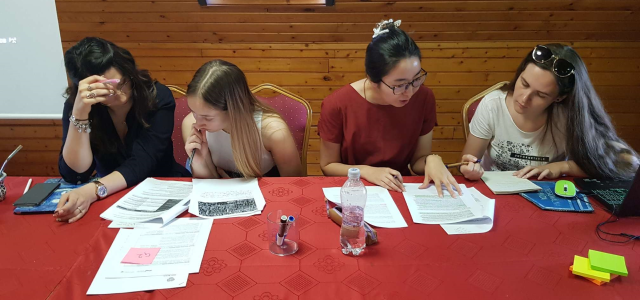
At the end of the Summer School curriculum, the participants worked on their final presentations, summarizing their work on their respective case studies throughout the event. The knowledge gathered and materials produced served as building blocks for them to present their solutions to local water governance issues. As an additional layer of challenge, they were to present their findings in front of stakeholders from various backgrounds and collect their feedback. This last test of their professional prowess helped them to realize their potential and direct their efforts in their future careers as aspiring water professionals.
After the successful finalization of the curriculum, the participants joined a major initiative to clean the Tisza River banks from pollution – Tisza Plastic Cup. As a real-life challenge, the participants had a glimpse into the issues that they discussed during the Summer School and contributed to solving them right on spot. Students helped with the preparation of the rafts used for removing the waste collected from the riverbanks by aflotilla of canoes going down the river. The event is set as a competition between almost 20 teams which were involved in tackling transboundary river pollution.
It gave me a lot of experience in teamwork and negotiation skills with limited time and people who have different background. It made me more aware of the acute problems that the whole world faces and how we all, with the right tools, can give a part of us to solve these problems. And it gave me new friends. - Johana Kalda, Estonia
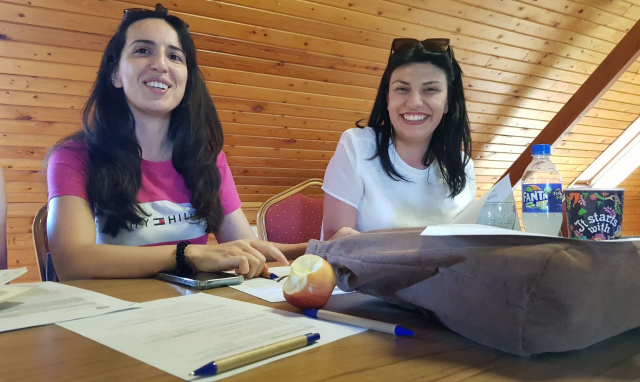
About GWP CEE Summer School
GWP CEE Summer School is a flagship youth initiative of Global Water Partnership Central and Eastern Europe. The Summer School strives each year to bring together a cohort of aspiring young water and climate specialists to enhance their education and practical experience. The Summer School is based on a combination of theory and practice, problem-based learning and interactive activities, presented by a plethora of speakers from relevant backgrounds.
